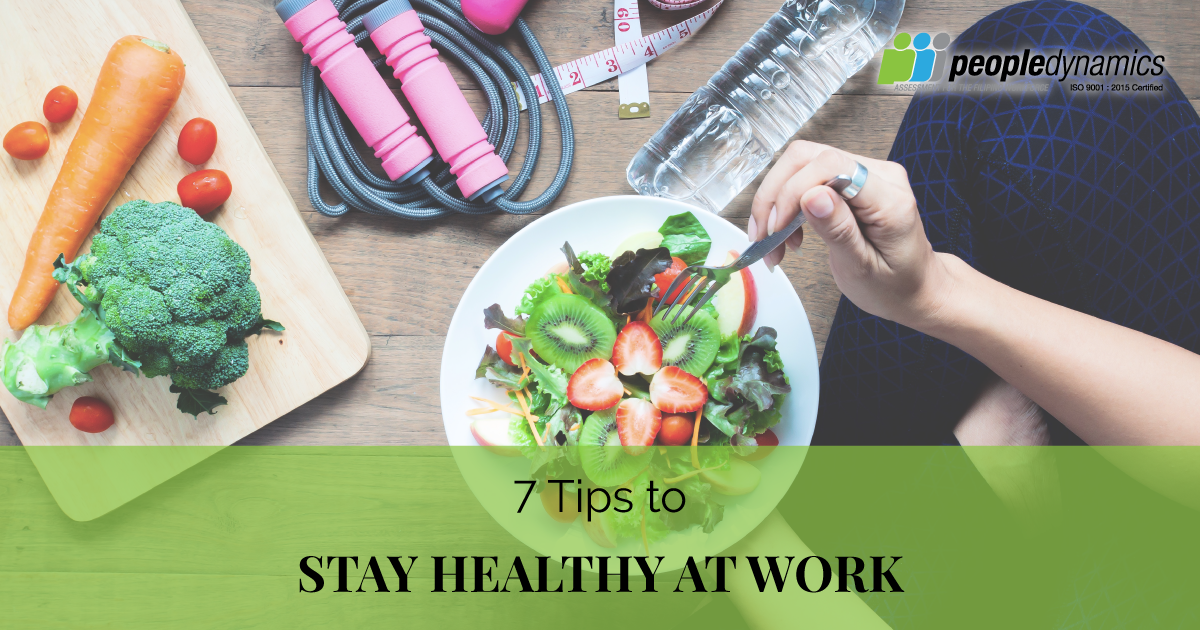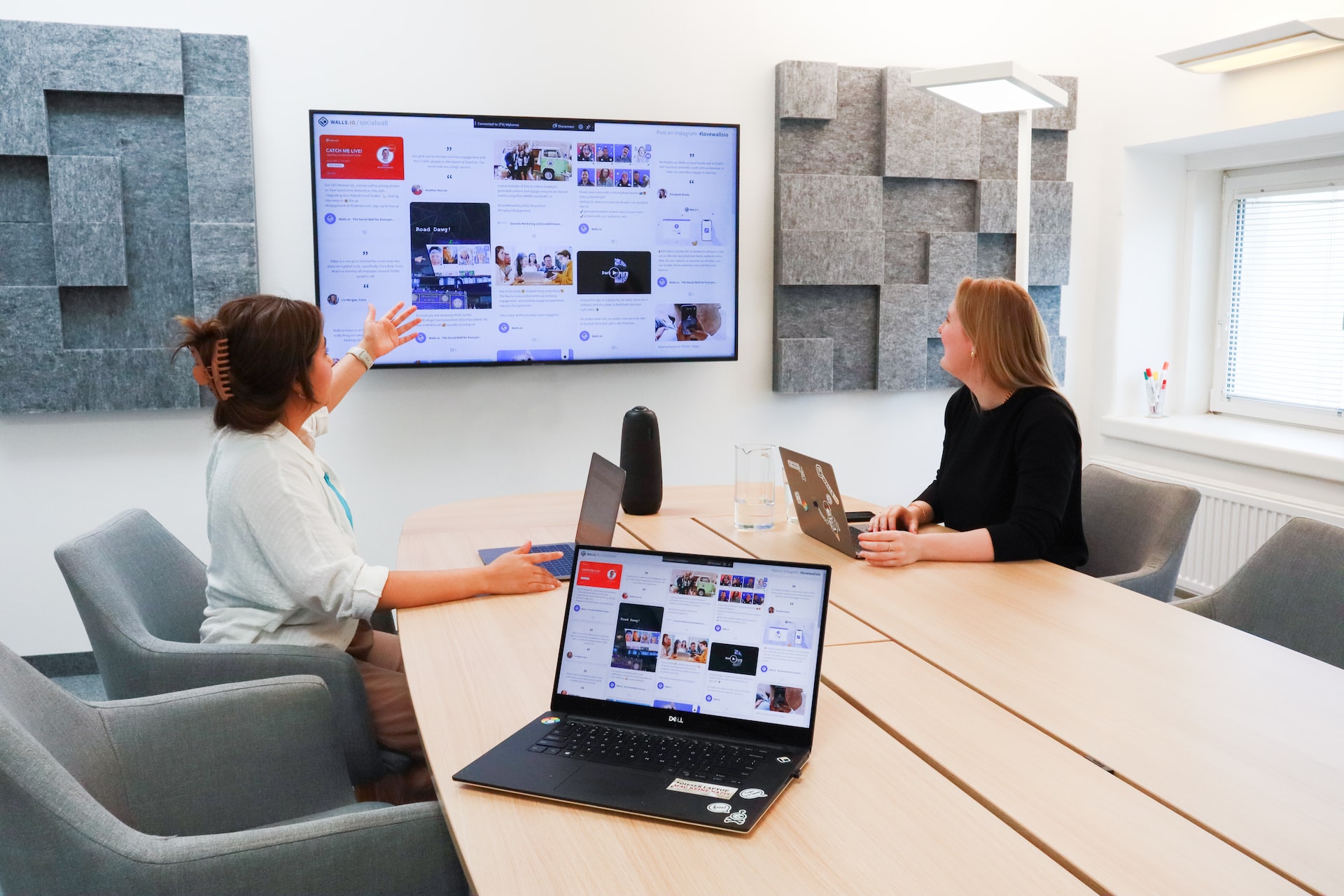The rainy season is here. And in the Philippines, the rainy season is synonymous with floods, heavy traffic, and additional stress. This can have a detrimental effect on your health. And when your health is affected, your work is, too. With the threat of the pandemic still present, how can you ensure that you remain healthy? Here are some tips for you to stay healthy at work!
7 Tips for Employees to Stay Healthy at Work
Make your health a priority
The first thing you should do to stay healthy at work? Make your health a priority. You’re most likely familiar wi0th this, but the adage “Health is Wealth” remains true, even to this day. You can only do things the best when you don’t feel any ailments. Because here’s a fact: your while your work affects your health, your health affects your work, too. But while making the right choices for your wellness will not always be convenient, the results are always worth it in the end. When you make your health a priority, you make a lot of other things easier.
Eat sensibly
When you’re at work, what and where do you eat? Do you bring your food? Or are you a suki—a frequent customer—of the fast-food chains and convenience stores near your office? Or do you eat in karinderias, cafeterias, or canteens? Wherever you eat, are you eating healthy?
A famous saying goes like this, “You are what you eat”. So if you don’t eat healthy, you can’t expect to be healthy. The temptation of all the delicious food in the world is truly hard to resist. And we’re not saying that you can’t indulge in unhealthy food. The key is moderation. Some general tips for eating sensibly are the following:
- Avoid greasy and fatty foods, and eat more leafy, green foods
- Lessen your sugar intake—if you want something sweet, opt for fruits instead
- Lessen your intake of junk food—they have high caloric content but are less fulfilling for your stomach
- Eat well-balanced meals on time, especially for breakfast
Drink water
Sometimes, when you’re so focused on working, you lose track if you’ve drunk water or not. And, some people, since it’s tasteless, prefer juices, soft drinks, and other flavored drinks over plain good ol’ water. But to stay healthy at work, you have to ensure that you get enough water in your body.
Most health experts recommend that you drink around 8 to 10 glasses of water or at least 2 liters per day. After all, according to studies, adult bodies are made up of 55% to 60% of water. Dehydration might seem a minor problem, but it can also cause death in severe cases. So, drink your water!
Take a break or breaks
Sitting in front of a computer—or in just sitting all day, in general, is not good for the body. According to Edward R. Laskowski, M.D., in his answer for a question in the Mayo Clinic website, extended sitting can cause obesity, an increase in blood pressure, high blood sugar, excess body fat around the waist, and abnormal cholesterol levels. Extended sitting periods without other physical activities can also weaken the muscles in your lower extremities, making you feel pain or numbness when you move from your sitting position.
Minimal or repetitive movements for long periods can also cause other ailments. For example, staring at your screen all day can strain your eyes resulting in irritation, dry, red eyes, and blurry or double vision. You can also have head, neck, and back pains. Your wrist that you usually used to move the mouse or type can suffer from Carpal Tunnel Syndrome.
That’s why to stay healthy, you must take a break or breaks. Stand up, move from your position at least every 30 minutes, and do some light stretching. You could also walk around for around 30 seconds before going back to work. To avoid straining your eyes, experts recommend the 20-20-20 rule: for every 20 minutes spent looking at the screen, try to look away at something 20 feet away, for 20 seconds.
Be hygienic
Viruses and bacteria can stay for certain periods on various surfaces—may it be plastic, wood, metal, etc. When you touch these surfaces, the viruses and bacteria transfer to your hand. And from your hand, you could transfer it to your eyes, mouth, or nose, allowing these germs to enter your body, causing various illnesses.
The solution: be hygienic. Clean your workstation frequently. And it’s not just your table but the surfaces of the equipment you use, too—laptops, computers, telephones, printers, mouse, etc. Whatever you touch, clean them. Allot at least 5 minutes at the end of the day to organize and tidy up your workstation so that when you get in the next day, you’re greeted with a neat desk. When you go to the comfort room, be sure to wash your hands for at least 20 seconds before your leave. It’s also good to always have sanitizers or rubbing alcohol ready on your desk.
Prepare the things you need the night before
What you experience in the morning can affect your mood for the rest of the day. Start your morning right by preparing the things you need the night before. Ready your bag, your outfit, and whatever things you need for the next day. So that when morning comes, you don’t have to waste time fixing these things. You could also have more time to enjoy your coffee or breakfast.
Learn how to manage stress
Stress, when not managed, can be detrimental to your performance and productivity, your health, and your life. That’s why you must know how to manage it. In our previous blog, we’ve listed 5 workplace stress management tips:
- Know your stressors — knowing your triggers will help you be able to control your reaction to it.
- Make healthy choices — avoid indulging in vices such as smoking, drinking, and stress-eating, instead, exercise, eat healthily, and have enough sleep.
- Establish boundaries — create boundaries between your work and your life. Some things you could do are to not check your work email once you leave the office, or knowing when to leave the task you’re currently doing for tomorrow.
- Recharge — when you’re experiencing burnout or stress, replenish your energy by taking time offs or vacations, disconnecting from your work, doing something you love, etc.
- Get support — talk to someone, accept help from the people you trust, or you could also seek professional help to manage stress.
Your goals in life are important, but you can only achieve those when you’re in the right state—physically, emotionally, and mentally. This is why your health is important. By applying the tips above, you can stay healthy at work!




